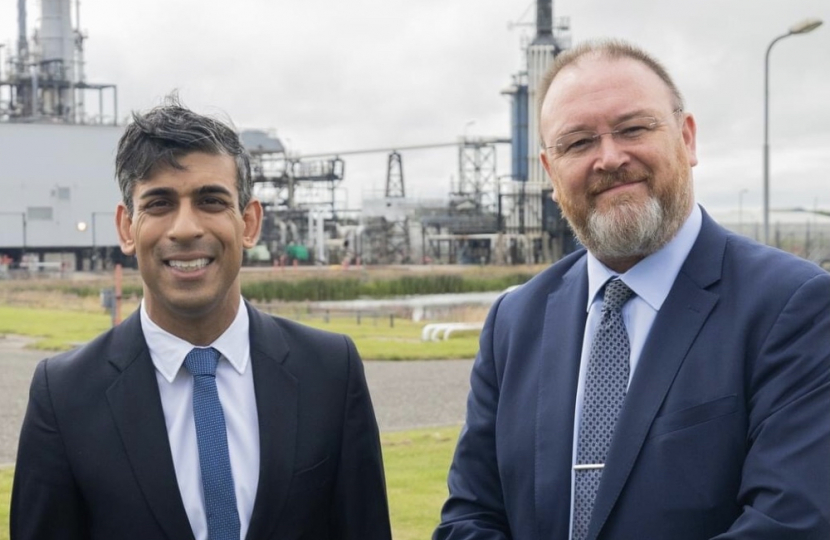
The debate on climate change is usually focused on two extremes – those who want to deny climate change or abandon net zero altogether, and those who want to go further and faster with no regard to the cost to people’s lives and other practicalities.
This debate needed to change, and last week the Prime Minister announced a more pragmatic, proportionate and realistic approach to meeting net zero that eases anxiety on ordinary working people.
This increased flexibility and choice will be offered a number of ways.
For example, the planned deadline for ceasing the manufacture and sale of new petrol and diesel engines will be extended from 2030 to 2035.
This does not suggest that the transition many people have already made or plan to make towards electric vehicles should be halted.
Manufacturers of electric vehicles will still need to ramp up production to meet rising demand – as will Governments and local authorities in installing the charging network required.
This announcement will come as a relief to so many of my constituents who have raised concerns with me about the previous targets and lack of choice.
This new deadline also aligns with those of similar countries – including the European Union, who decided on a 2035 date earlier this year.
Similarly, people should no longer feel that they will be arbitrarily forced into installing heat pumps to replace gas or liquid fuel boilers.
While alternative gas and liquid fuel sources – such as bio-liquid propane gas (bioLPG) or hydrogenated vegetable oil (HVO), manufactured from sustainable sources – continue to be developed and offer additional choices for consumers, households will not be forced to rip out their boilers.
People will only be expected to install a heat pump when replacing their old boiler anyway, and only then from 2035.
Crucially, exemptions from heat pumps will be made from about a fifth of households in cases where they are not practical or affordable.
The Prime Minister also confirmed that our international commitments to reach net zero by 2050 and reduce emissions by 68% by 2030 will remain in place.
So, contrary to reports in the media and assertions by opposition parties there is no ‘watering down’ of these obligations.
This should also be taken into account along with the UK’s existing world-leading record.
We have consistently over-delivered on our targets and have had the fastest reduction in emissions in the G7, down almost 50% compared to 1990.
The Conservative UK Government remains committed to a pragmatic, proportionate and realistic approach to net zero that can and will be delivered, while showing the world how it can be done.
And the Prime Minister also reconfirmed his support for the British oil and gas industry and its vital role in continuing to deliver on our declining yet ongoing demand for oil and gas from domestic sources, supporting local jobs and supply chains as well as reducing dependence on foreign imports.
Unlike First Minister Humza Yousaf who, during a virtue-signalling trip to a Climate Summit in New York vowed to ‘end Scotland’s place as oil capital of Europe.’
Given the role that oil and gas companies play in, maintaining energy security AND the critical skills, technology and expertise needed to deliver the energy transition, UK Government Energy Minister Graham Stuart was right to describe the SNP leader’s position as ‘madness!’

